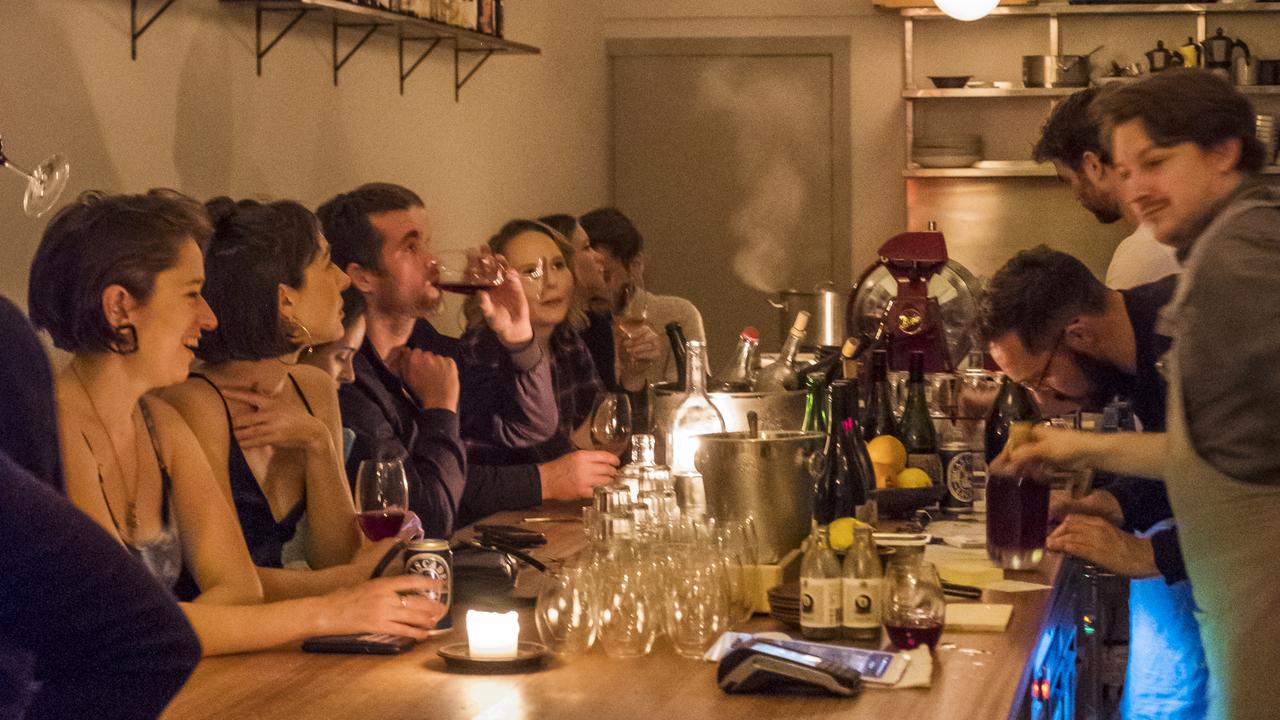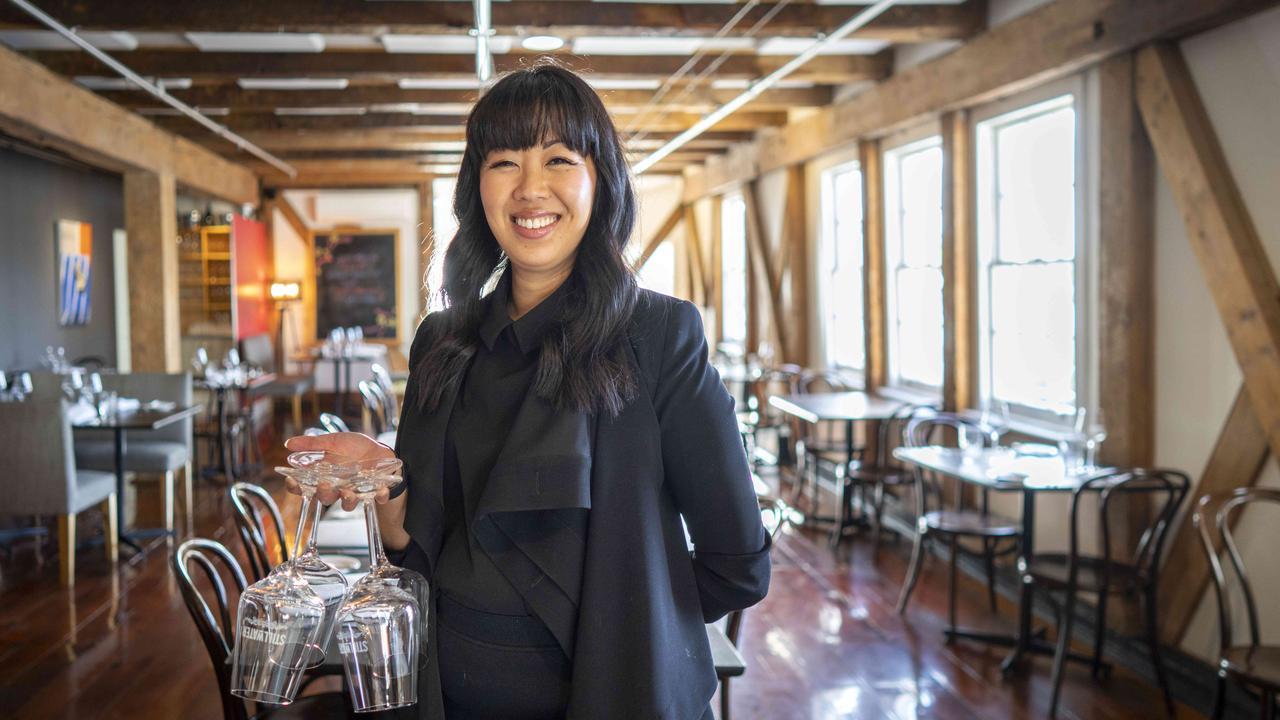TasWeekend: Tasmanian herbal healer shares her knowledge of the amazing power of plants
Aboriginal horticulturalist, herbalist and elder Kris Schaffer says there is much more to the plants and flowers living in our backyards than just a pretty bush.
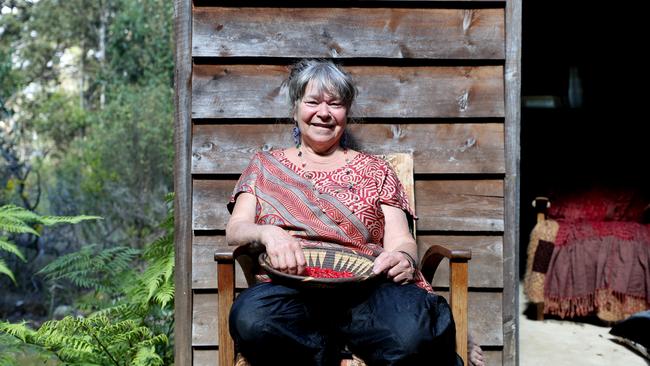
Lifestyle
Don't miss out on the headlines from Lifestyle. Followed categories will be added to My News.
SHE’S sitting by a roaring fire on a cold winter’s day with her legs tucked up underneath her. Kris Schaffer is taking a moment for some much-deserved self-care.
As she talks, the 66-year-old twists and twirls her long, silver hair into a high pile on top of her head. There’s no sign of a bobby pin, but somehow that hairdo doesn’t unravel.
This Aboriginal horticulturalist, herbalist and elder then reaches over to a table between us to pour out a steaming pot of lemon verbena tea. She grew and dried the leaves herself. Its lemony aroma wafts into the warm space of Schaffer’s open-plan kitchen, dining and lounge.
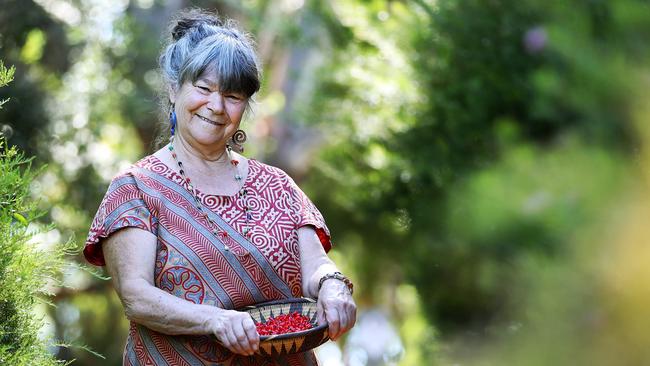
We are cosied up in the boomerang-shaped-house she designed and built herself in Neika, in the foothills of kunanyi/Mt Wellington, 35 years ago.
A pademelon bounces past the full-glass doors. Schaffer says living in the bush is as close as she can get to a traditional Aboriginal lifestyle.
We are discussing the healing power of plants. It’s a topic dear to her heart, and one she knows more about than possibly anyone else in Tasmania.
She tells me about an aunty in Perth, Western Australia, who may have a bit more knowledge than her — but believes she’s probably the second most qualified in the country. “I know it so well,” Schaffer says of the bush she’s lived in since childhood, touching her nose and smiling. “Our bush and the healing that comes from it are the essences of our Aboriginal culture.”
At night time, Schaffer says, plants take up all their moisture and energy from the soil. So when they open their stomata for the first rays of the morning light, the dew on its flower ends up with concentrated healing properties.
She likes to start the day with a short meditation walk that involves a seasonal ritual of plucking a Tasmanian waratah flower so she can suck out its nectar while she walks.
“It quenches the soul,” Schaffer says. Waratah essence has a calming effect that brings clarity. Schaffer says it feels like pure love — like the long-time memory she has of her then two-year-old daughter coming up behind her in surprise and wrapping her arms lovingly around her.
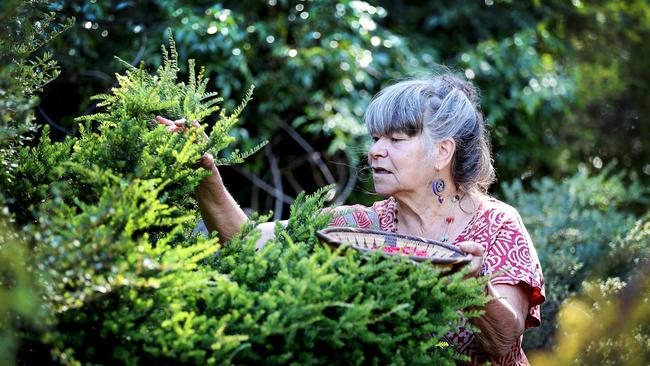
For thousands of years Aboriginals have sucked the nectar from tick bush to help them with healing. Schaffer says it gives her some relief from her osteoarthritis.
If she has a headache she will use the leaves from the stinkwood tree and crush them in her hands so she can breathe in their essential oils. The relief, she says, is almost instant.
Schaffer’s carved a career out of the knowledge she says she absorbed from being on country in Tasmania since she was eight.
“You absorb it through smelling it and feeling it and seeing it and just being there,” Schaffer says. “It’s the creative learning process of discovery.”
She says there is a deep time memory in all of us — a genetic DNA we inherit — that explains that when she experiences a plant through crushing it to smell it, infusing it in hot water or even smoking it, it immediately takes her back to the place she experienced it for the first time: Cradle Mountain, Lake St Clair, Cockle Creek, Maria Island.
When she gave birth to her daughter, on the timber floor in the room we are sitting in, more than 30 years ago, she showered and bathed the baby, and the next thing she did was walk out to show her the herb garden.
She’s a grandmother now and loves to walk around her property with a grandchild on her hip and crush the eucalyptus near them so they absorb it.
“Those first fragrances that they smell will be something that becomes imprinted into them,” Schaffer says. “It’s incredible what they absorb at an early age.”
She has the majority of pretty much all plants she needs in her own garden, she says. “And if I haven’t got them here on tap, I have them in community gardens and in friends’ gardens and I know where to go to forage for them.”
About 25 years ago, one of the leading essential oil companies sent delegates to Neika so they could try and absorb all the decades of her learning. She has taught children and adults about the power of plants for more than 40 years.
Toddlers as young as three at the Bridgewater and Geeveston Aboriginal and Child Family centres have some understanding about our native plants because of the elaborate gardens she grew for them. Aboriginal students from Rokeby take turns to spend time with her so they can learn about the bush. She takes teenagers out on country adventures.
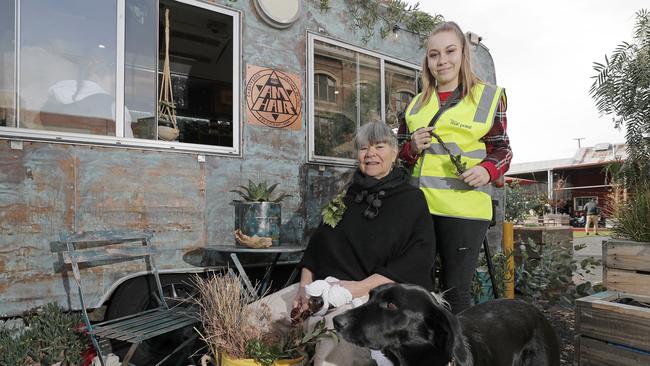
The healing garden at Macquarie Point in Hobart is Schaffer’s baby as well — she designed it, sourced and grew most of the plants, and then drove from Neika to water and nourish them every day through our last hot and dry summer. She has also used the plants in that garden to pass on her knowledge to young Aboriginal gardener trainees.
She says plants are so intuitive that they often appear randomly where they are most needed. For example, tea tree grows in areas where there are mosquitoes and flies so the plant can be used as a remedy for bites and stings, and native pepper grows in the alpine areas to help people suffering from cold or exposure.
“Plants provide a deep healing,” Schaffer says. “In Aboriginal culture when plants are needed, they will come to us.”
The first example that pops into her head is the valerian weed popping up randomly at the Macquarie Point site — a place, she says, with a sad history. Firstly, white settlers took the land off the Big River People, then thousands of whales were slaughtered there.
Historically, it was also a place where poor and desperate people congregated, and was rife with despair and diseases such as cholera. “Valerian is a weed and grows where there has been pain and trauma,” Schaffer says. “It’s an indicator of pain and trauma.”
Schaffer is in the midst of creating new workshops on healing plants because, she says, people are craving a re-claiming of that sacred knowledge.
“People are begging to trust in plants again,” she says. “Industrialisation has gone so far and so fast that we are all wanting to return to that plant source.”
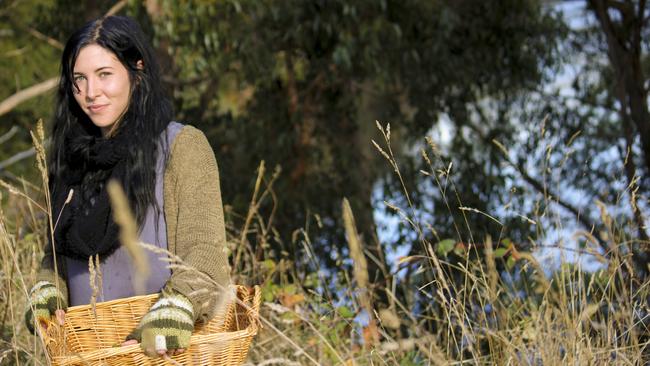
It’s exactly the kind of course Ranelagh’s Shy Scott would be super keen to sign up for. Even as a little girl, the 26-year-old remembers smashing up all her Mum’s roses and mixing up the coloured mess with a little outside tap water and a stick from the garden. Little did she know she was making rosewater.
Scott’s had her head in herbal books for the past three years trying to absorb “the wise and forgotten ways of true herbalism”.
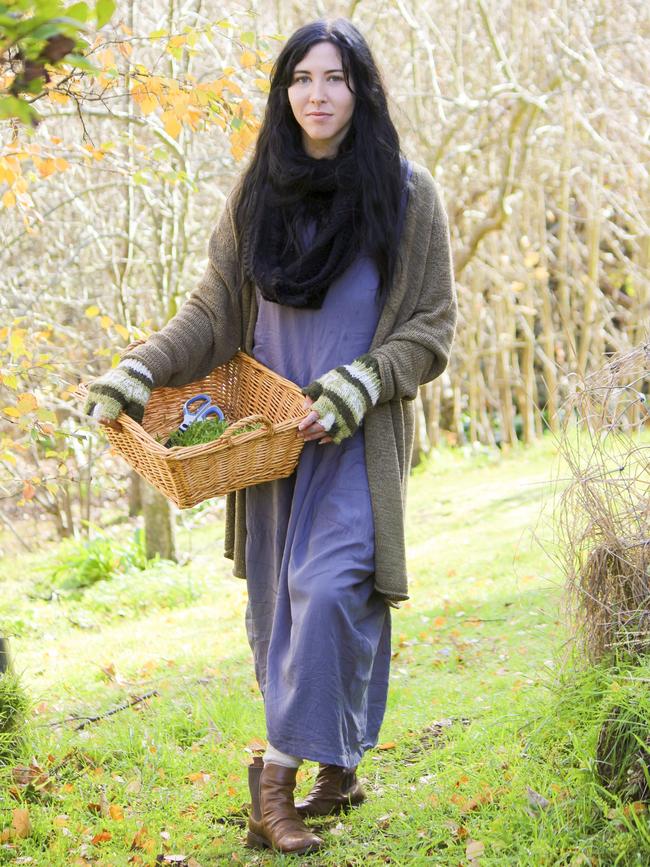
The self-taught herbalist runs a home business called Twig and Clove that sells herbal-infused soaps, serums, balms, skin scrubs and candles — often made from herbal weeds growing in her backyard.
Sometimes she sets up a stall at markets but she has customers all over Australia she posts to. “I’m just a plant person,” Scott says. “It’s so nice to go out and find a new plant and get to know it.”
Scott’s a big fan of chickweed and stinging nettle and uses them in her cooking most days. At this time of year she stirs them into soups and stews for a nutritional boost.
With the change of season speedwell has just popped up in her yard — it helps speed up the healing process in minor skin wounds.
She also uses calendula and plantain in a salve to help with things like that; like last week when her daughter, Birdie, got scratched by their cat.
Cleavers is her favourite, though, and right now it’s coming up everywhere, just when she needed the extra skin hydration it provides.
She says she has been called many things — “a wild woman” and a “listener of the weeds”, but she settles on “plant whisperer”.
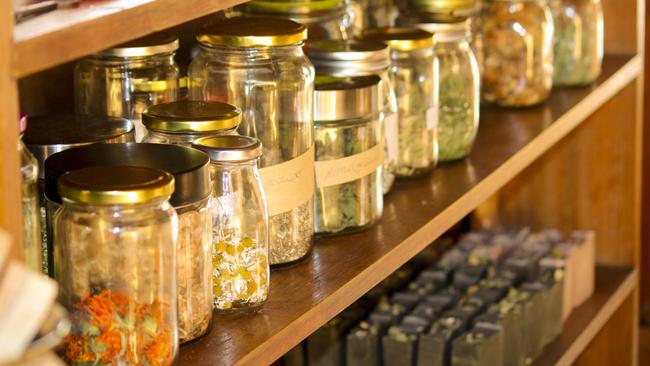
Learning and working with herbs has given her the strength to shed layers of self-doubt and negative thought patterns, she says. Plants have not only been her healers but teachers as well.
She’s drawn to them and she says they are drawn to her. When we are wandering around her garden at the end of our interview just before we are about to walk back inside, her long skirt catches on a raspberry bush thorn.
“See,” she says. “The plants are always finding ways to keep me out in the garden for longer.”
For more information see Shy Scott’s Instagram account @twigandclove and keep an eye on TasWeekend for news about Kris Schaffer’s upcoming workshops on healing plants.

